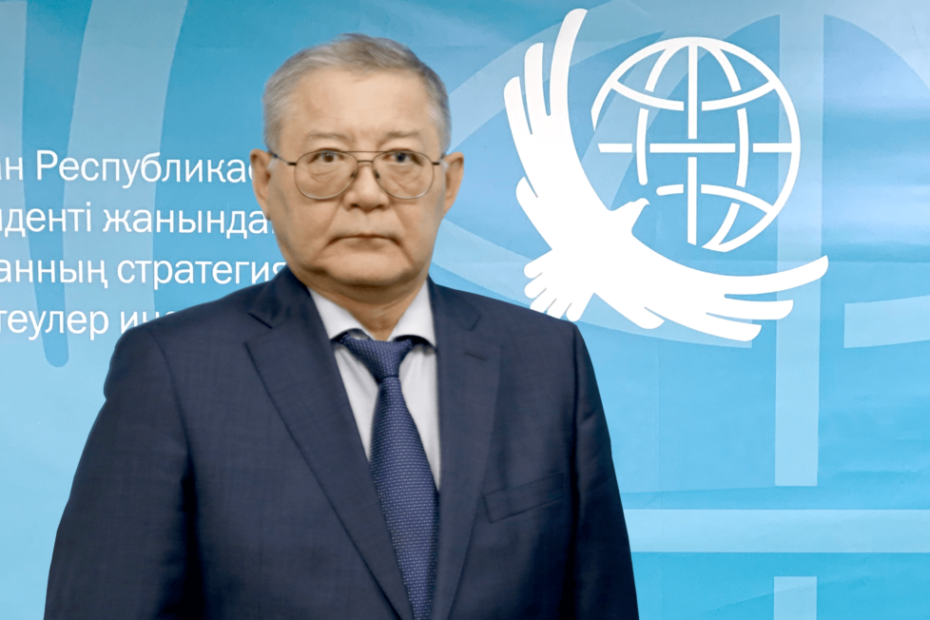German Chancellor Olaf Scholz is expected to have an official visit to Kazakhstan on September 16-17 this year. The reason for the visit of the head of the German government is the invitation of the President of the Republic of Kazakhstan K.K. Tokayev to visit the country, as well as to take part in the second “Central Asia – Germany” summit, which will be held in Astana.
Germany is Kazakhstan’s key strategic partner on the European continent. We are bound by growing economic cooperation, trusting political relations, and close cooperation on environmental and humanitarian issues, including through international organizations. The parties rightfully call almost one million German immigrants from Kazakhstan the “Golden Bridge of Friendship”, who have maintained warm feelings towards the hospitable Kazakh land in their historical homeland.
Trade, economic and investment spheres are showing noticeable growth under the bilateral relations.
In 2023, trade turnover between Kazakhstan and Germany amounted to 3.9 billion dollars, which is 41% higher than in 2022.
Exports from Kazakhstan to Germany, however, increased 3.1 times (which is 742.3 million dollars). The main share of Kazakhstan’s exports fell on oil and petroleum products, coal, ferroalloys, phosphorus, fish fillets, and aircraft.
Imports to Kazakhstan from Germany increased by 41.2% in 2023 and amounted to 3.1 billion dollars. The product range consisted mainly of pharmaceuticals, medical equipment, automobiles, agricultural machinery, tractors, trailers and semi-trailers, motor and lubricating oils, pumps and steam boilers.
In general, Kazakhstan accounts for 83% of the total trade turnover of Germany with Central Asia, which makes Astana a key economic partner of Berlin in the region.
Investment cooperation is developing dynamically. One of the world’s largest investment projects is a cluster for the green hydrogen production in the Mangystau region, created by the German-Swedish company Svevind (investment volume in which is 50 billion dollars). Another project is by HMS Bergbau AG which plans to build a lithium production plant in East Kazakhstan Region (with a 500-million-dollars investment volume). In 2023, Germany included Kazakhstan in the list of 34 countries for which a preferential procedure for providing investment guarantees was approved.
The visit of the Federal Chancellor will be accompanied by an impressive business delegation, therefore, conclusion of new agreements in trade, economic and investment can be expected from the negotiations in the Kazakhstan’s capital. In particular, according to German government spokesman S. Hebestrait, the negotiations will focus on cooperation in science, economics, energy, communications and raw materials. Given the needs of Germany and the existence of an agreement on supplies of materials to the EU (Kazakhstan produces 19 of the 34 important raw materials for the EU economy), the negotiations are likely to affect cooperation in this area. It is also expected to discuss new projects in agriculture, chemistry, mechanical engineering, and other spheres. The prospects of the Middle Corridor (Trans–Caspian International Transport Route), which is of global strategic interest as a project of sustainable communication along the West-East line, are constant topics of Kazakhstan’s negotiations with European partners, including Germany.
In political terms, it is expected to discuss the internal political situation issues of the two countries along with the democratic reforms being carried out in Kazakhstan and the post-election situation in Germany (local elections in Saxony, Thuringia and Brandenburg, held on September 2 this year). In addition, high–level visits, as a rule, provide for an exchange of views on topical issues on the international agenda. In this case, the topics to discuss include the prospects for accelerating the peace process in Ukraine and the Middle East, the mediation capabilities of Kazakhstan and Germany in promoting these processes, as well as the positions of the parties regarding the ideas of the UN Summit of the future which is scheduled for the end of this month.
Kazakhstan shows great interest in Germany’s initiatives in ecology, climate protection and sustainable development. Back in 2007, Berlin put forward a Water Initiative for Central Asia aimed at improving the efficiency of water resources management in the region. The new Green Central Asia Initiative by the Federal Republic of Germany launched in 2019 can be considered its natural follow-up. It provides for cooperation between five Central Asian states on environmental and sustainable development issues with the support of the German government.
The importance of Scholz’s visit in the context of the German cooperation development with the entire Central Asian region should also be noted. Astana is the first capital of Central Asia to host such a summit, which indicates Kazakhstan’s leading role in the processes of regional cooperation with external actors. It also is obvious that for Germany and the EU, Central Asia is of interest precisely as a single “organism” that absorbs rich and diverse raw materials, human potential, transit and transport opportunities, as well as a common economic market with growing purchasing power and profitable trade offers.
In this context, the intensification of Germany’s connections with Kazakhstan and other Central Asian countries is indicative. In 2023, there were exchanges of high-level visits between Kazakhstan and Germany. For example, in June, President of Germany F.–W. Steinmeier visited Kazakhstan and Kyrgyzstan, while the Kazakh President visited Germany twice, precisely, in September to participate in the first meeting of the Central Asia + Germany format held in Berlin, and in November with a separate official visit. In the same year, President of Uzbekistan S. Mirziyoyev visited Germany twice; in turn, Chancellor O. Scholz will visit Tashkent on September 15 this year before the meeting in Astana. The heads of Kyrgyzstan and Tajikistan, S. Zhaparov and E. Rahmon, also took part in last year’s Berlin summit.
In general, it is safe to predict that the upcoming visit of German Federal Chancellor O. Scholz to Astana will give a dynamic impetus to the development of Kazakh-German relations and elevate cooperation between Central Asia and Germany to a qualitatively new level.
Erbulat Seilekhanov,
chief research fellow, KazISS under the President of RK


